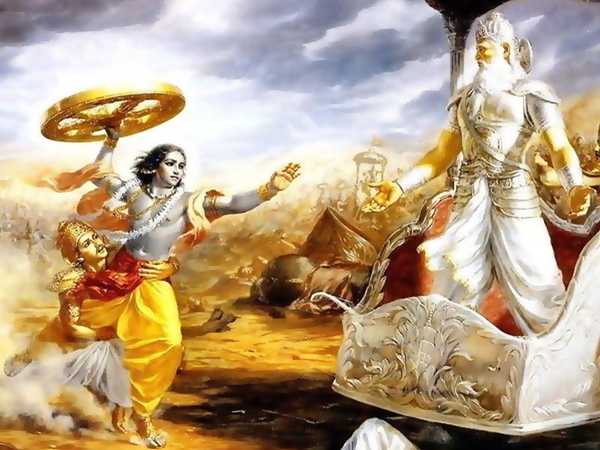Chapter 183

“The Gandharva continued, ‘The Brahmana sage (Parasara) thus addressed bythe illustrious Vasishtha restrained his wrath from destroying theworlds. But the Rishi Parasara endued with great energy–the son ofSaktri–the foremost of all persons acquainted with the Vedas–performeda grand Rakshasa sacrifice.
And remembering the slaughter of (his father)Saktri, the great Muni began to consume the Rakshasas, young and old, inthe sacrifice he performed. And Vasishtha did not restrain him from thisslaughter of the Rakshasa, from the determination of not obstructing thissecond vow (of his grandson). And in that sacrifice the great MuniParasara sat before three blazing fires, himself like unto a fourth fire.And the son of Saktri, like the Sun just emerging from the clouds,illuminated the whole firmament by that stainless sacrifice of his intowhich large were the libations poured of clarified butter. Then Vasishthaand the other Rishis regarded that Muni blazing with his own energy as ifhe were the second Sun. Then the great Rishi Atri of liberal souldesirous of ending that sacrifice, an achievement highly difficult forothers,–came to that place. And there also came, O thou slayer of allfoes, Pulastya and Pulaha, and Kratu the performer of many greatsacrifices, all influenced by the desire of saving the Rakshasas. And, Othou bull of the Bharata race, Pulastya then, seeing that many Rakshasashad already been slain, told these words unto Parasara that oppressor ofall enemies:
‘There is no obstruction, I hope, to this sacrifice of thine, O child!Takest thou any pleasure, O child, in this slaughter of even all thoseinnocent Rakshasas that know nothing of thy father’s death. It behoveththee not to destroy any creatures thus. This, O child, is not theoccupation of a Brahmana devoted to asceticism. Peace is the highestvirtue. Therefore, O Parasara, establish thou peace. How hast thou, OParasara, being so superior, engaged thyself in such a sinful practice?It behoveth not thee to transgress against Saktri himself who waswell-acquainted with all rules of morality. It behoveth not thee toextirpate any creatures. O descendant of Vasishtha’s race, that whichbefell thy father was brought about by his own curse. It was for his ownfault that Saktri was taken hence unto heaven. O Muni, no Rakshasa wascapable of devouring Saktri; he himself provided for his own death. And,O Parasara, Viswamitra was only a blind instrument in that matter. BothSaktri and Kalmashapada, having ascended to heaven are enjoying greathappiness. And, the other sons also of the great Rishi Vasishtha who wereyounger than Saktri, are even now enjoying themselves with thecelestials. And, O child, O offspring of Vasishtha’s son, thou hast alsobeen, in this sacrifice, only an instrument in the destruction of theseinnocent Rakshasas. O, blest be thou! Abandon this sacrifice of thine.Let it come to an end.’
“The Gandharva continued, ‘Thus addressed by Pulastya, as also by theintelligent Vasishtha, that mighty Muni–the son of Saktri then broughtthat sacrifice to an end. And the Rishi cast the fire that he had ignitedfor the purpose of the Rakshasas’ sacrifice into the deep woods on thenorth of the Himavat. And that fire may be seen to this day consumingRakshasas and trees and stones in all seasons.'”




